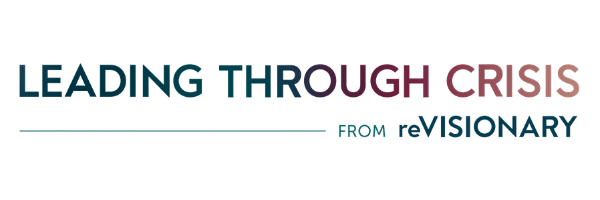Feminine Leadership with Gen Retzlaff
Listen to this episode on Apple Podcasts or Spotify
I want to start by acknowledging something that has driven so much of the work that I do, the interests I have, and the ways that I show up in general: Fundamentally, I believe that binary ways of thinking and categorizing things are bulls*&%.
Anyone with a basic understanding of psychology, sociology, and/or anthropology will tell you that our brains are designed to keep us safe, and part of keeping us safe involves categorization. When we categorize things, we can interpret new information more efficiently, and if we need to react to keep ourselves safe, we are primed to do exactly that due to the category we have assigned the situation.* I’m not arguing that point by any means. It’s because I believe that it is (for the most part) true, that I find it so frustrating we don’t spend more time thinking about the implications and veracity of the categorizations, assumptions, and binaries that our brain is constantly imposing on the world around us.
While there are clear evolutionary advantages and reasons we lean so heavily on assumptions, bias, and categorization, they are not so advantageous in modern times. While we have done some work to question the arbitrary nature of a few of the binary categories that are widely accepted, there is still a lot of work to be done – and even more so when it comes to questioning and reassigning the categories that we accept internally without any question.
But I digress (and that’s another post for another day)...
The reality is that as much as I am frustrated by the categories that exist and are often widely accepted in the world, they do serve as a touchpoint and common understanding when it comes to connecting with other people. And, despite my contrarian nature, I do recognize the importance of having a common language to bridge gaps and move things forward.
A great example of this is the idea of feminine and masculine. While I loathe to agree with the widely accepted understanding of feminine and masculine, I do accept that in North America, when we talk about the qualities associated with each of those categories, they are generally understood by other people.
The reality is that much of what we think of as masculine and feminine exists as a result of socialization, not because it is inherent in any particular person. And nowadays, more than ever, many people don’t see themselves represented in either of those categories.
So while I appreciate that using the language of masculine and feminine enables us to speak about things with a common understanding, I also think it’s incredibly important to remember they are not inclusive or representative categories, the behaviours we “assign” to each of those categories are not finite or fixed, and some of the best representation we have of “feminine” behaviour comes from men and vice versa.
One of the best leaders I’ve ever known, who happens to be a man, is one of the best leaders because he embodies so many of the traits that we traditionally see as being feminine, as well as so many of the traits we traditionally understand to be masculine. He’s decisive, speaks with authority, is driven and competitive, speaks up, takes action, and is focused (“masculine”). He is also compassionate, empathetic, people-oriented, vulnerable (he has no hesitation when it comes to crying in front of people or sharing his insecurities with others), and collaborative (“feminine”).
His leadership style is balanced between the feminine and the masculine, and as a result, he’s wonderfully effective and highly respected.
As we navigate the complexities of modern leadership, it's crucial to transcend the confines of traditional, binary thinking. The most effective leaders are those who embrace a spectrum of qualities, breaking free from the narrow definitions of 'masculine' and 'feminine.' This inclusive approach not only enriches their leadership style but also fosters a culture of diversity and adaptability within their organizations.
As leaders and executives, we have the opportunity – and perhaps the responsibility – to reassess our ingrained categorizations and biases, embracing a more nuanced and dynamic understanding of what leadership can be. In doing so, we not only enhance our effectiveness but also pave the way for a more inclusive future in leadership.
As you may have gathered, in this episode, we are talking to coach and consultant Gen Retzlaff about balanced leadership, the notion and reality of “masculine” and “feminine” traits, the problem with binaries, and what to do about power (whether we are currently in a position of wielding it or not).
I hope you’ll listen and that this conversation (or this post) ignites or inspires something in you. If it does, I would love to hear about it!
—
*An oversimplification, I’m aware, but allow me this for the ease of the example. 😉
—
Geneviève Retzlaff, or Gen as she's widely known, stands as the driving force behind Grow Better Together. With a mission centered on organizational transformation and the reduction of employee turnover, Gen leverages her 15 years of HR experience and holds certification as a transformational and team performance coach (PCC & CTPC).
Gen's sole passion is to introduce people to the profound impact of coaching, helping them enhance their influence on the world. She's particularly drawn to empowering women to overcome the prevalent underrepresentation in corporate boardrooms and the imposter syndrome struggles they face.
Having witnessed these challenges firsthand, Gen excels at identifying and eliminating limiting beliefs. She specializes in guiding women to step into leadership roles, serving as inspiring role models for emerging professionals. At Grow Better Together, Gen is at the forefront of creating organizational change while addressing the issue of employee turnover, fostering a future where women in leadership roles are more commonplace.
To learn more about Gen and her work, visit grow-better-together.com, connect with her on Pick My Brain (https://www.pickmybrain.world/profiles/genevieve-retzlaff), or LinkedIn.
